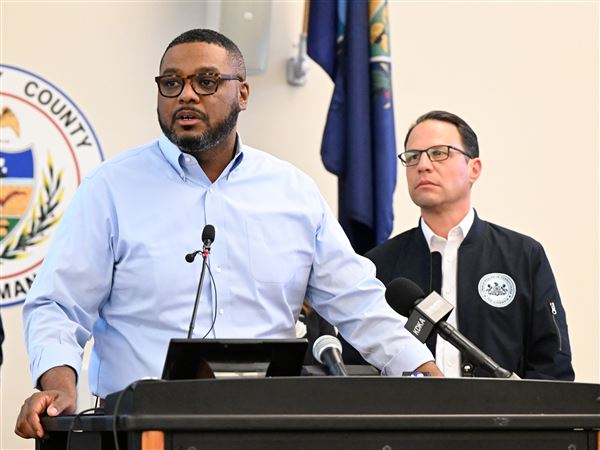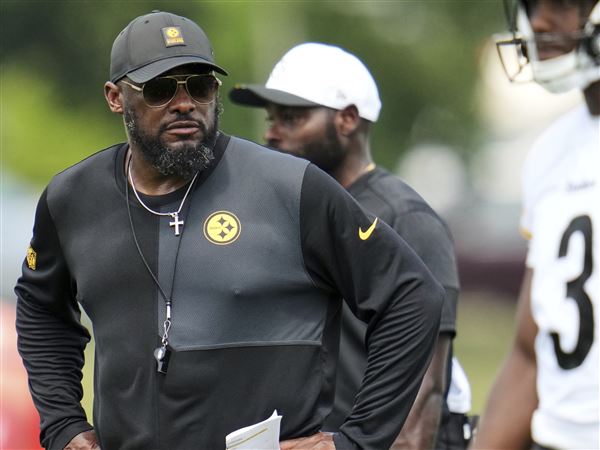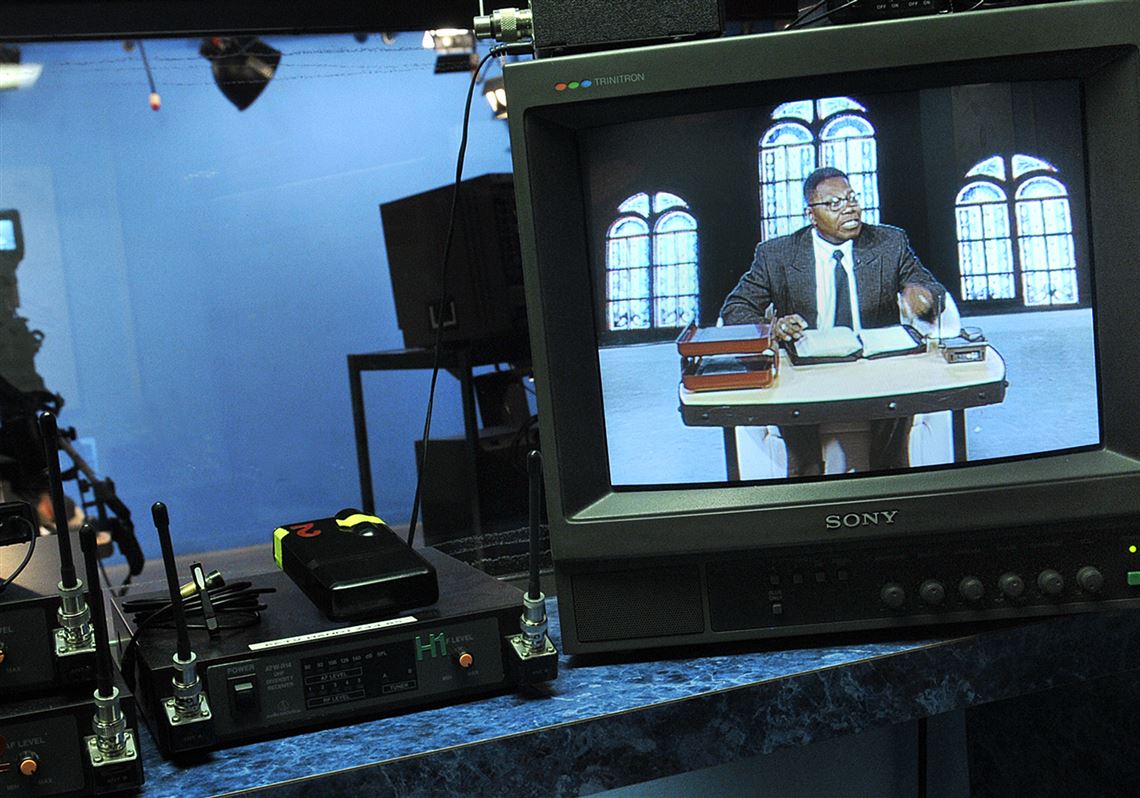Paul Eugene Green has an international audience of 18 million YouTube viewers, but he shows up every week at Pittsburgh Community Television in Chateau to bring "Paul Eugene's Fitness Show" to its local subscribers.
"I've been doing this since 2004," said the 55-year old Manchester native, "and my life hasn't been the same since. I was at Walmart and a couple recognized me and started doing my routines in the parking lot."
Mr. Green's show airs every Friday at 10 a.m. and is one of dozens seen regularly or sporadically on PCTV-21, which for 25 years has brought local people's interests to local people's homes.
Executive director John Patterson calls the channel, which is available to 90,000 cable customers in Pittsburgh, "a vessel" for the city to get to know its own people. The station also streams on the PCTV website.
The relevance of public access television has been questioned these days because anyone can have his own "show," whether by blog, YouTube or other social media.
But not everyone has Internet.
Mr. Patterson said public access channels "level the playing field" for people whose voices often go unheard.
"We are a free speech outlet. The day that this is no longer important to people will be a sad day indeed."
In addition, social media companies are for-profits that could affect access if they change the way they do business, he said. "We don't get in the way of content, as long as there is no hate speech or pornography."
Douglas Kellner, a professor in the graduate school of education and information sciences at the University of California at Los Angeles, writes on the subject, calling public access television one of the last bastions of community-to-community media at a time when the country is suffering "a crisis of democracy."
The Federal Communications Commission required cable companies to provide public access channels in 1972. The Supreme Court struck down the mandate in 1979, but cable was providing so many channels that public access flourished anyway.
Pittsburgh, like many cities, saw the value. It has supported PCTV since 1986. The city currently has franchise deals with Verizon through 2019 and Comcast through 2020.
PCTV operates on $500,000 a year. Most comes from these agreements. Fees people pay for production and editing classes and to use the facility contribute about 10 percent, Mr. Patterson said.
Classes cost $75 for a year, $65 for six months. Once enrolled, people can reserve studio time and get help from staff in their production, sound, editing and set design.
On Tuesday morning, Mr. Green arrived in the studio and began piecing green and blue floor mats together like jigsaw puzzle pieces.
"We're not going to do the island background today," he told production manager Yuriy Aleksandrov. "I'm not dressed for the Caribbean." He decided to do "Hi Lo aerobics." Asked what that meant, he cupped one hand around his mouth and whispered theatrically, "Think Jane Fonda."
In the control room, Mr. Aleksandrov said "Stand by," then zipped from one control to another on his wheeled chair. The room filled with '80s electronic disco. On the monitor, Mr. Green appeared smiling, bouncing from one leg to the other and bringing his hands together to the rhythm. "Step-touch!" he called out.
Mr. Green never stops smiling and keeps an encouraging patter going to an audience that he imagines is trying this at home. "Two more!" he called out. "You got it," his words in time with the beat. "I love it. Wah-hoo!"
An instructor at L.A. Fitness, Mr. Green said his exercise routines "are born out of my passion for dance."
In 1975, he won a spot on "Soul Train" in an international dance contest. He had performed in various cities before returning to Pittsburgh 15 years ago. "At that time, I thought, 'Ain't no cameras happening here,' " he said. "But a producer in L.A. told me about public access television."
While Mr. Green had the studio, Elnora Fortson, a poet who lives in Garfield, was in an editing suite preparing her show "Praise Poet Trees."
Her husband, Walter Fortson, helps to produce her show and four of his own.
"I actually have a tree on my set," she said. "I had written a book of poetry and my husband said I should do a show. I have poets on who read their inspirational poetry."
Years ago, Timmy Willis of the Central Northside was a drummer on tour with the Marcels, the Drifters and the Crystals in their post-hit years. He has a music show on Fridays at 8 p.m.
"The Timmy Willis Show" features performances by and interviews of musicians.
"I have been tinkering with video and photography all my life," he said. "I wanted to be able to tell some of my story. I don't think enough people take advantage of it [PCTV]. There are interesting stories in all these neighborhoods that need to be told, and people do watch.
"No matter where I'm at, people come up to me and say they see my show," he said. "I work at Allegheny General Hospital in the housekeeping department and one time, I came through the automatic doors and a guy said, 'That is you!' "
Mr. Patterson said a survey of cable subscribers indicates about a fourth are aware of or watch PCTV.
The station has aired talk shows and forums on subjects as diverse as gun violence and theater. Its shows include "Traci the Trailer Trash Girl," of which Harold Keller is the star and producer, and the Rev. Frank Tillman's "Swords of Light."
PCTV has broadcast and aired a forum on Marcellus Shale for the League of Women Voters, a program about the Census for the Local Government Academy, a roundtable discussion for World Environment Day 2010 and a discussion with FCC officials "about where things are headed in community media," Mr. Patterson said.
"Corporations have gobbled up the landscape. The loss of localism is the whole story of America."
First Published: October 24, 2011, 8:00 a.m.


















